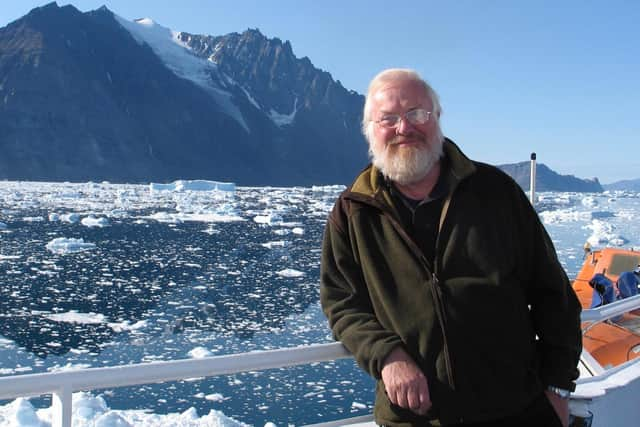Book review: Northern Lights - The Arctic Scots, by Edward J Cowan
Professor Edward J Cowan, generally known as Ted, was one of Scotland’s most distinguished, learned and popular historians. He died in 2022 and it is a shame that he did not live to see the publication of this last and enthralling book, sub-titled The Arctic Scots. It is a splendid piece of compelling narrative history, at its heart the search for the North-West Passage from the Atlantic to the Pacific. It is however much more than a history of voyages, being a study of the development of the Canadian North and the relationships between Scottish scientific historians and the native peoples, the Inuit and First Nations. It is a work of true scholarship, the notes extending to 33 pages, the bibliography to 15. Cowan was as pugnacious in opinion as he was erudite – how splendid to find the opinion of a contemporary American academic bluntly dismissed as “hogwash”.
The book is rich in detail, a strong narrative only occasionally in danger of being suffocated by that detail. It requires and deserves careful reading. Fortunately it is so full of good stories, striking incidents and rich characters that any reader is likely to be happy to take it slowly. Many Scots worked for the great Hudson’s Bay Company which was almost as influential and powerful in Canada as the East India Company was in India. Given its Royal Charter by Charles II, the company controlled the fur trade and its governor, the Dingwall-born Sir George Simpson, explorer and businessman, was, Cowan says, the most powerful Scot in the world in the mid-19th century.
Advertisement
Hide AdMost of the Arctic Scots came, naturally enough, from ports or coastal counties. John Ross and his nephew James were from Stranraer. Both were explorers, James a doctor also, and both would rise from a fairly humble family to be knighted. Others came from Orkney and Shetland – one remembers that both sets of islands were well represented in Nelson’s fleet at Trafalgar. There were whalers also, the Gray family from Peterhead being active in the northern seas throughout the 19th century. What distinguished all these men and many like them was the breadth of their interests, and their willingness to learn from the native peoples of Northern Canada and work with them. This, in Cowan’s view, distinguished these Scots from the officers of the Royal Navy, who were equally active in the northern seas.


The most famous event featured here is the attempt of Sir John Franklin to find and force his way through the fabled North-West Passage in command of a Royal Navy Ship. Sir George Sinclair thought Franklin unsuited to Polar exploration; he was too small and too fat. Whether this was a fair judgement or not, Franklin failed and he and all his crew were lost. His wife, now widow, in England refused to believe in the disaster and even persuaded Charles Dickens to write in support of her cause. In fact, Franklin and his crew were all dead, something established by John Ross. Ross’s assertion made him hugely unpopular in England, and it would be years before he was proved right. Cowan’s account of Franklin’s ill-advised expedition and Ross’s argument for its fate is a gripping piece of storytelling.
He doesn’t, I should add, hesitate to dwell on the horrors (which include the recourse to cannibalism of desperate and stranded men), as well as the achievements, of polar exploration. What is most impressive about his Arctic Scots not their courage, remarkable as this was, but their intellectual energy – their interest in the life of the native peoples, and their willingness to learn from them.
In the last page of this book – one which deserves to become as well-known as anything written about Scots and the British Empire – Cowan regrets that, while what he calls “the tedious Franklin Cult” was growing, the Scottish contribution to our knowledge of the far north “was largely ignored.”
Well, he has left us with no reason to ignore it now, no excuse for doing so. He has written a book which justifies the claim made by John Buchan and others that no two small nations have done more than the Scots and the Jews to add to the sum of knowledge and an understanding of the world.
Northern Lights – The Arctic Scots, by Edward J Cowan, Birlinn, £30